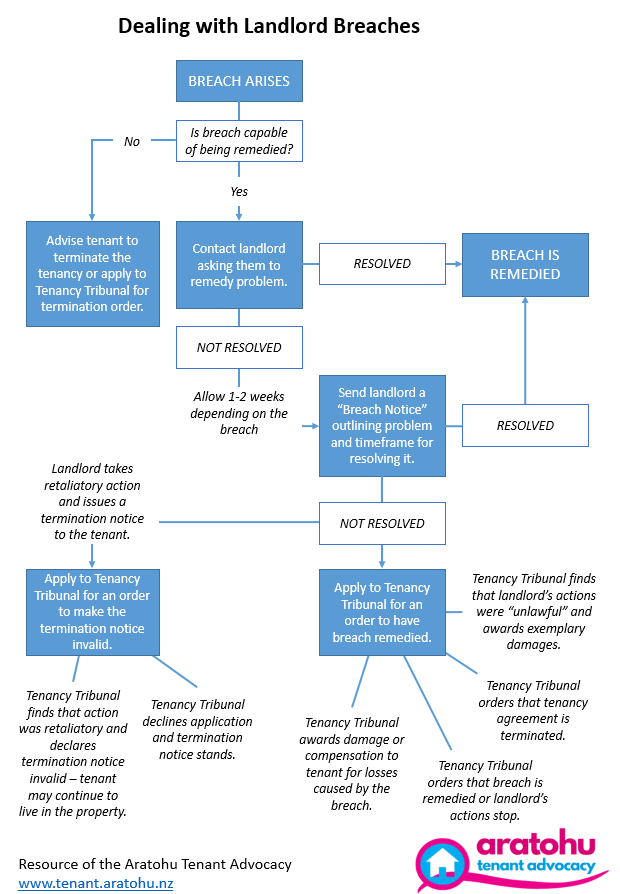When problems arise in the tenancy it’s good to try to address these as soon as possible. Identifying issues early can make them easier to resolve. This is the case whether it’s about the landlord failing to fulfil their responsibilities (eg, carrying out repairs), the landlord breaching the tenant’s rights (eg, coming round without giving notice), or is a situation of the tenant themselves not meeting their obligations (eg, getting behind in rent).
Generally, the best starting point is always to talk to the landlord to let them know there is a problem. Tenants and landlords can often resolve problems between themselves, or with the help of an advocate, without going to mediation or the Tenancy Tribunal. This approach will generally be less stressful and less time-consuming.
Quick tip
The following diagram gives an overview of dealing with landlord breaches
Below are some strategies to help tenants raise and resolve issues with landlords.

